Doordarshan Diplomacy
This report examines the current state of Doordarshan and formulates an agenda for transforming the channel into an effective foreign policy tool for India
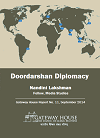 Courtesy: Spenta Multimedia
Courtesy: Spenta Multimedia
This report examines the current state of Doordarshan and formulates an agenda for transforming the channel into an effective foreign policy tool for India
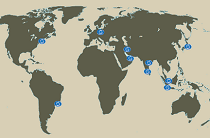 Courtesy: Spenta Multimedia
Courtesy: Spenta Multimedia
News channels like China’s CCTV, Russia Today and Al-Jazeera have become definitive voices for their nations and for international views. Now, with the Modi government on a public messaging and public realations spree, it is the right time to re-configure our public broadcaster, Doordarshan, to showcase India’s growing global ties and the success of its democracy to the world.
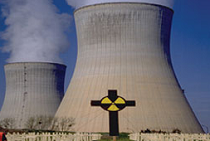 Courtesy: wikimedia
Courtesy: wikimedia
India’s power sector is currently facing a coal shortage with Coal India unable to keep pace with demand. Nuclear power is a cheaper and more reliable alternative for generating electricity as compared to coal
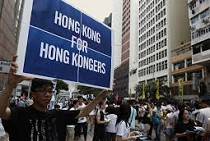 Courtesy: eurosouth-hub.net
Courtesy: eurosouth-hub.net
China’s rise as an economic power has meant that Hong Kong has lost its edge as the East’s international centre for business. This decline combined with Beijing’s efforts to cement control over the city has led to protests that have an underlying theme of Hong Kong wanting to chart its own path under the “one country two-systems” policy
 Courtesy: Wikimedia Commons
Courtesy: Wikimedia Commons
The UN and the global finance industry are making gradual but concerted efforts to align business interests and ecological sustainability. A growing number of companies are combining profit-making with social responsibility. There is still a long way to go, but the UN system has created useful mechanisms of change
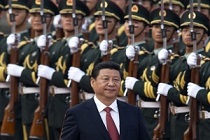 Courtesy: newshence.com
Courtesy: newshence.com
The reason behind a People’s Liberation Army (PLA) contingent intruding into eastern Ladakh around the time of Chinese President Xi Jinping’s visit to India, still needs to be decoded. It is not unlikely that domestic rivals, including possible ‘rogue’ elements within the PLA, could have decided to embarrass Xi — angry with his historic crackdown on corruption among Chinese officials
 Courtesy:
Courtesy:
With the growth of the Islamic State and of terrorist groups in Africa and other parts of the world, global coordination to combat terrorism is imperative. Prime Minister Narendra Modi has urged the UNGA to adopt the Comprehensive Convention on International Terrorism, but divergent national interests remain a hurdle
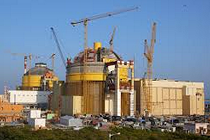 Courtesy: Wikimedia.org
Courtesy: Wikimedia.org
Bringing U.S. nuclear technology to India is a goal identified in the countries’ joint vision statement. Although public discourse on the India-U.S. nuclear deal has focussed on the liability clause, the pact’s success also depends on resolving other factors such as local sourcing, technology transfer and project delays
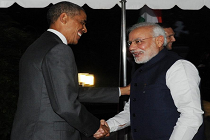 Courtesy: Ministry of External Affairs
Courtesy: Ministry of External Affairs
Prime Minister Narendra Modi’s visit to the U.S. is unlikely to reset bilateral relations. The relationship remains determined by bickering over trade and investment deals, such as the impasse at the WTO and the disputes over IPR. To become real strategic partners, both countries must move beyond these transactional exchanges
 Courtesy: GoI
Courtesy: GoI
Although the Land Boundary Agreement between India and Bangladesh was discussed when Narendra Modi and Sheikh Hasina met on the sidelines of the UNGA, a timeline for ratification was not clarified. But both leaders have the numbers in their governments to move forward this critical agreement and must do so with urgency